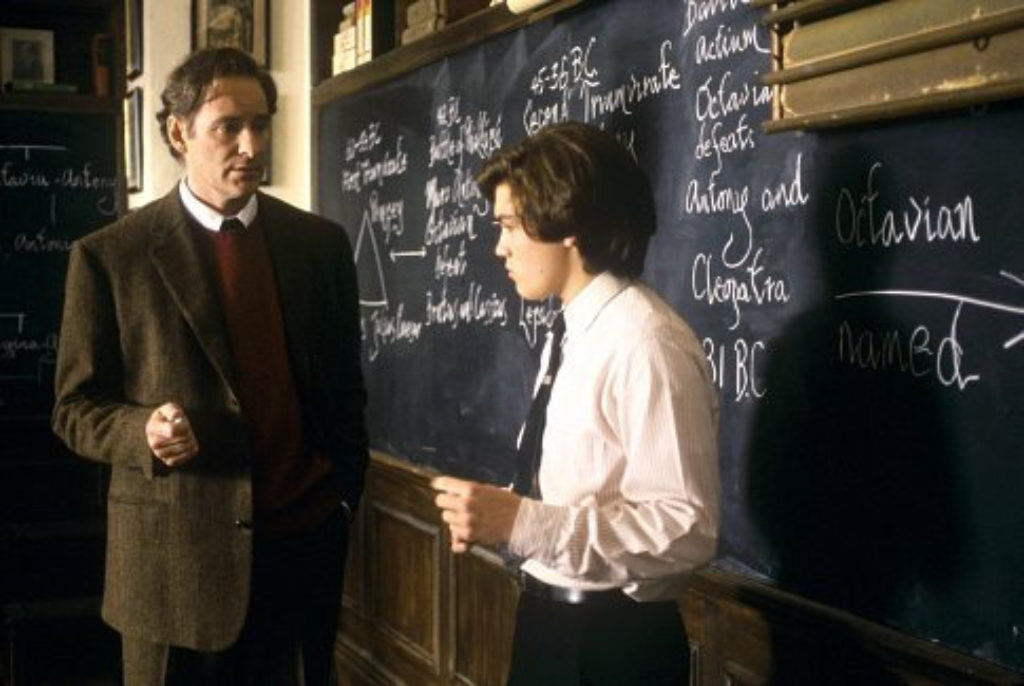
At St. Benedict’s School for Boys, straight-laced Mr. Hundert has a contagious passion for ancient Greek and Roman history. Every year his students compete to be one of three elite, toga-clad scholars facing off in a prestigious academic bee. One day Sedgewick Bell (Hirsch), the spoiled, disrespectful son of a powerful senator, saunters into class and threatens to derail order and discipline. Mr. Hundert works to inspire the lad. But in the process, the normally principled mentor violates ethical standards with consequences that ripple 25 years into the future.
The Emperor’s Club contains amazing lessons about life. It esteems honesty and integrity. Pithy quotes abound, both from bygone philosophers (said Socrates, “It is not living that is important, but living rightly”) and contemporary academics (the headmaster tells new students, “The end depends upon the beginning”). Scenes examine a father’s powerful impact on his son’s character—for better or worse. People are also forced to cope with disappointments and unfulfilled expectations.
As good as this film is at times, it trips over its toga by including senseless profanity, sexual slang and abrasive misuses of Jesus’ name. Boys ogle a porn mag (the camera glimpses a centerfold) and discuss pubic hair. Bell’s ignoble influence on his peers also involves an obscene gesture, tobacco use, drug humor and a coed skinny-dipping lark that’s interrupted just as the eager participants start to undress.
The most frustrating near-miss since Finding Forrester, The Emperor’s Club is a story worth telling that does a lot right, yet fails to heed its own lesson: Brief moral lapses can undermine the best of intentions.